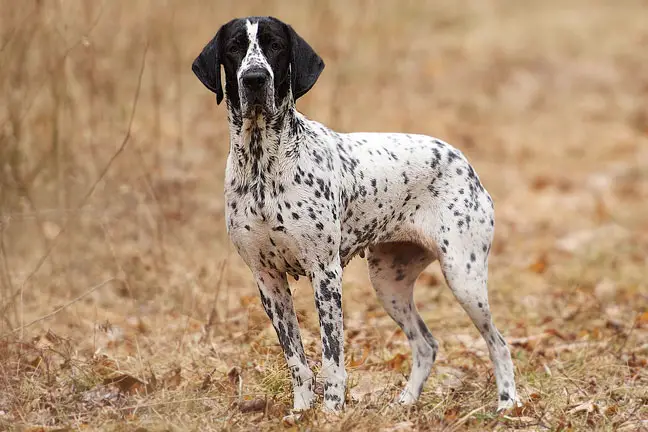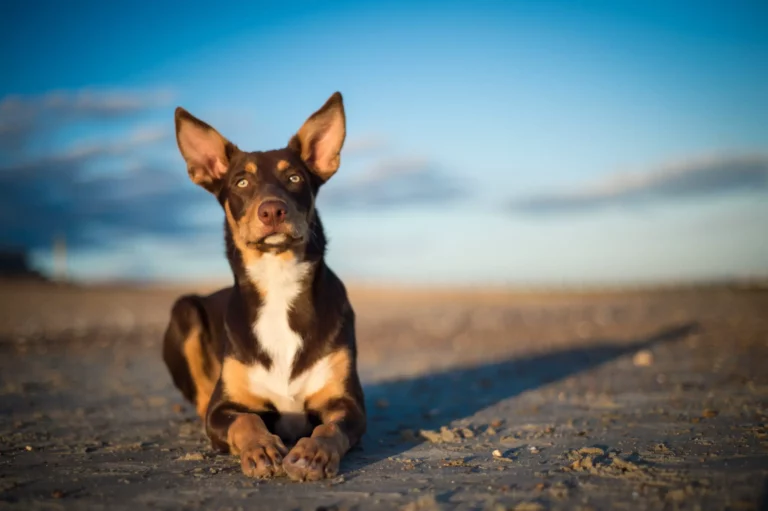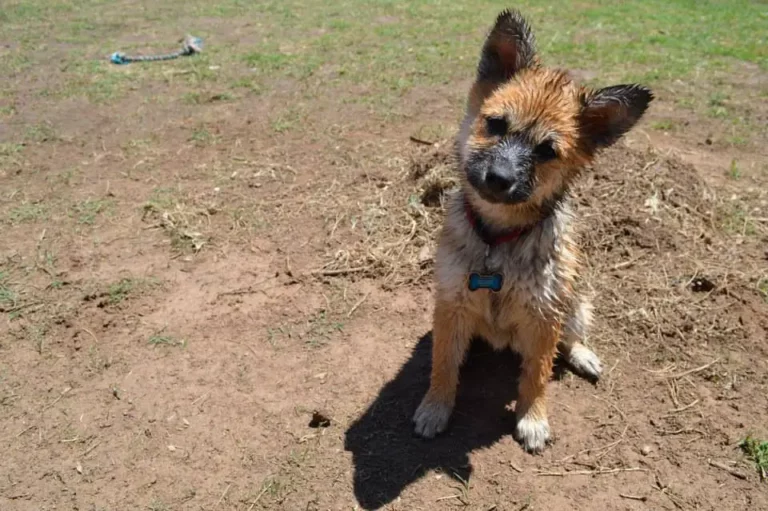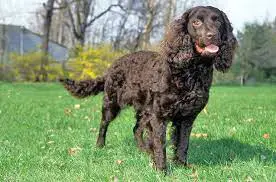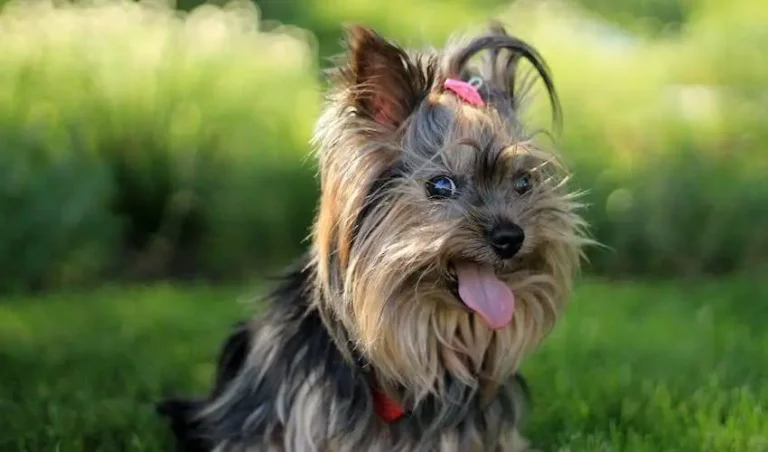Ariège Pointer Dog Breed: Pictures, Info & Care Guide
If you’re looking for an energetic, affectionate pup to keep up with your active lifestyle, the Ariège Pointer may be the perfect breed for you!
This loyal, intelligent sporting dog needs a ton of exercise and mental stimulation, but in return it’ll bring companionship and fun wherever it goes.
Learn more about the Ariège Pointer’s unique characteristics and how to care for one here.
Overview of the Ariège Pointer
| UTILISATION | Pointing dog |
| FCI-CLASSIFICATION | Continental Pointing Dog |
| BREED GROUP | Watchdog |
| COUNTRY OF ORIGIN | France |
| HEIGHT | Female: 56–65 cm, Male: 60–67 cm |
| WEIGHT | Female: 25–30 kg, Male: 25–30 kg |
| LIFE EXPECTANCY | 12-14 years |
| TEMPERAMENT | Docile, energetic, independent, quick |
| INTELLIGENCE | High |
| SHEDDING AMOUNT | Occasional |
| DROOL AMOUNT | Medium |
| EXERCISE AMOUNT | High |
| ENERGY LEVEL | Very high |
| BARKING LEVEL | Occasional |
| TRAINABILITY | Moderately easy |
| COAT LENGTH/TEXTURE | Short |
| COLORS | Brown-white, orange-white, reddish-white |
About the Ariège Pointer breed
The Ariège Pointer is a large, muscular hunting dog used for pointing and retrieving birds in the rugged mountain terrain of southwestern France.
It was developed from traditional French Pointers and the now-extinct French white hound.
They are typically about 56 to 67 cm (22–26 in) tall at the shoulder and can weigh 10 to 16 kg (22–35 lb).
Appearance
The Braque de l’Ariège, otherwise known as the Ariège Pointer or Ariège Pointing Dog, has a short white coat, speckled with larger patches of colors such as orange, liver, or chestnut on its head and ears.
Its ears are droopy with a docked tail.
This typically proportioned breed stands 24 to 26 inches (60 to 67 centimetres) high at the shoulder and is known for its power and robustness.
Its quick and energetic nature also needs regular training and activity due to its independent mindset.
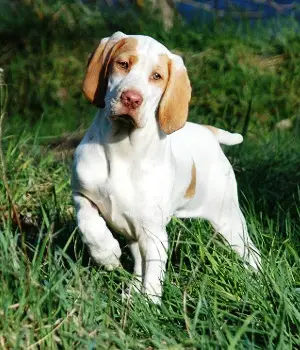
Temperament and Characteristics
The Ariège Pointer is an active and energetic breed, making them an excellent choice for hunting or active leisure activities like running, swimming or playing chase.
They are loyal and affectionate dogs who can form strong bonds with their owners.
They’re also intelligent and eager to please, making them relatively easy to train.
They are alert, vigilant watchdogs that will sound the alarm if they sense danger.
Owners’ Caring Expectations
Health Considerations
The Ariège Pointer is a relatively healthy breed, but they can be susceptible to some genetic and health issues common in purebred dogs.
Potential health concerns include hip dysplasia, eye conditions like cataracts and hypotrichosis, as well as patellar luxation.
It’s important to remember that all breeds of dog can experience medical issues at some point in their lives, and regular vet visits are essential for early diagnosis of any potential problems.

Ideal Activities for an Ariège Pointer
Ariège Pointers are active dogs, so they need plenty of exercise and stimulation every day.
They enjoy activities such as agility, swimming, jogging, tracking, retrieving and herding.
They are particularly adept at scent work and can sniff out animals or items with ease.
Although their instinct to hunt will sometimes kick in unexpected places, it’s important to keep them on-leash in public areas to avoid unpleasant encounters with other animals or people.
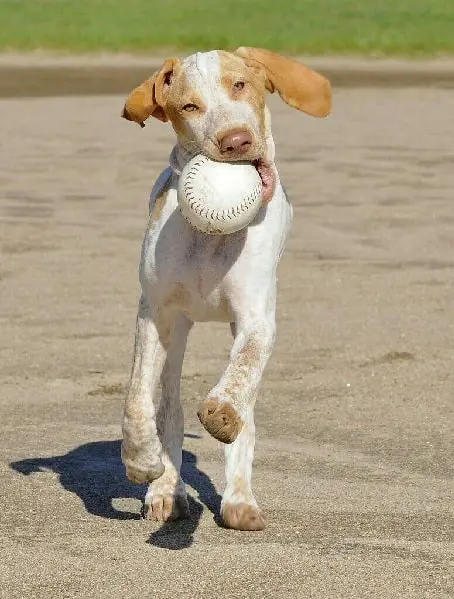
Caring for an Ariège Pointer
The Ariège Pointer is a breed that is best suited for living in the country with access to lots of room and ample opportunities for exercise.
With its short fur, this breed requires only minimal grooming such as weekly brushing and occasional trimming of their claws.
It is also important to pay attention to the cleanliness of the dog’s ears and eyes, as dirt easily accumulates in their structure which can lead to infections.
When living in an apartment, it is vital that these dogs get frequent walks and training sessions so they have some way to burn off energy.
Training
The Ariège Pointer requires a strong, consistent training approach with plenty of patience.
If mistakes are made during the learning process, the dog will not forgive you and both the instructional regime and your relationship with the animal could suffer as a result.
This breed tends to have a mind of their own, so close supervision is essential to ensure that they do not try to dictate any terms.
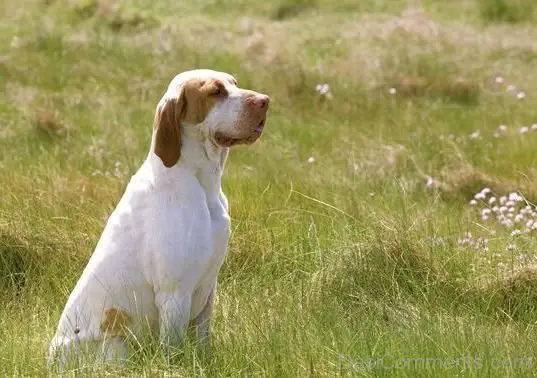
Nutrition
A balanced diet is essential for an active Ariège Pointer.
Although its protein component may be crucial, do not rely only on meat or milk to feed your dog.
These two food types should not be combined in a single meal as they can have adverse effects.
Instead, you can serve chunks of lean meat or bread soaked in milk every now and then.
Make sure you grate the vegetables properly before giving them to your pet as this will make them easier to digest.
Remember to never feed your dog pork rib bones.
Find a Responsible Breeder of Ariège Pointers
When looking for a puppy, it can be tempting to turn to pet stores or puppy mills, but these establishments often have questionable breeding practices.
You should always strive to find a responsible breeder who takes pride in producing puppies with regards for wellness, temperament and conformation.
Ask the breeder about the parents’ personalities and health history as well as where they were raised, and make sure they feed their puppies nutritious food and provide enough physical activity.
Make sure you are satisfied with all answers before investing in an Ariège Pointer puppy.
History
The Ariège Pointer is a hunting dog breed that originated in the South of France.
It is believed to be descended from crosses between the Perdiguero de Burgos and the Bracco Italiano, two popular hunting breeds in Europe.
This dog type affords hunters a reliable companion when hunting wild hare, partridge and birds.
the Ariège Pointer was at risk of extinction until 1990 when a group of breeders, notably led by Mr. Alain Deteix, dedicated themselves to reviving and protecting this part of France’s National heritage.
Thanks to their efforts, this ancient breed is still alive today.
Frequently Asked Questions
Are Pointers an aggressive breed?
No, Ariège Pointers are not generally an aggressive breed.
They are known to be independent and sometimes aloof, but they have a strong bond with their family.
They can also be quite protective and territorial, so proper socialization is important at a young age.
Are Pointers good indoor dogs?
The Ariège Pointer is a great companion dog that loves spending time with its family.
They are loyal and gentle yet playful, making them perfect indoor companions.
However, they can also be strong-willed and need plenty of exercise to stay both happy and healthy.
As long as their needs are met, they will make excellent indoor companions.
Are pointers good house dogs?
The Ariège Pointer is a wonderful choice for families looking for a loyal and loving pet.
Not only are they beautiful, but they also make excellent house dogs, as they are gentle, intelligent and obedient – qualities that make them perfect for life in the home.
Additionally, with their strong retrieving instincts and athleticism, these pointers still make great hunting companions.
What are pointer dogs known for?
The Ariège Pointer is known for its keen sense of smell, excellent stamina and acrobatic jumping ability.
These dogs have a particular affection for people, which makes them great companions and loyal guardians.
They are an intelligent breed with a strong prey drive, making them perfect hunting companions.
What is the largest pointer breed?
Ariège pointers are some of the largest registered pointer breeds, with males weighing between 64 and 90 pounds and standing over 25 inches tall.
With their muscular build and long legs, these dogs were created to work tirelessly in rugged terrains like the Pyrenees Mountain range.
Are pointers difficult dogs?
The Ariège Pointer is known for being a very intelligent and trainable breed, although they do tend to be independent and need owners who are patient and consistent in their training.
While they are not considered difficult dogs, they require strong leadership and proper socialization to ensure they grow into happy, confident companions.

